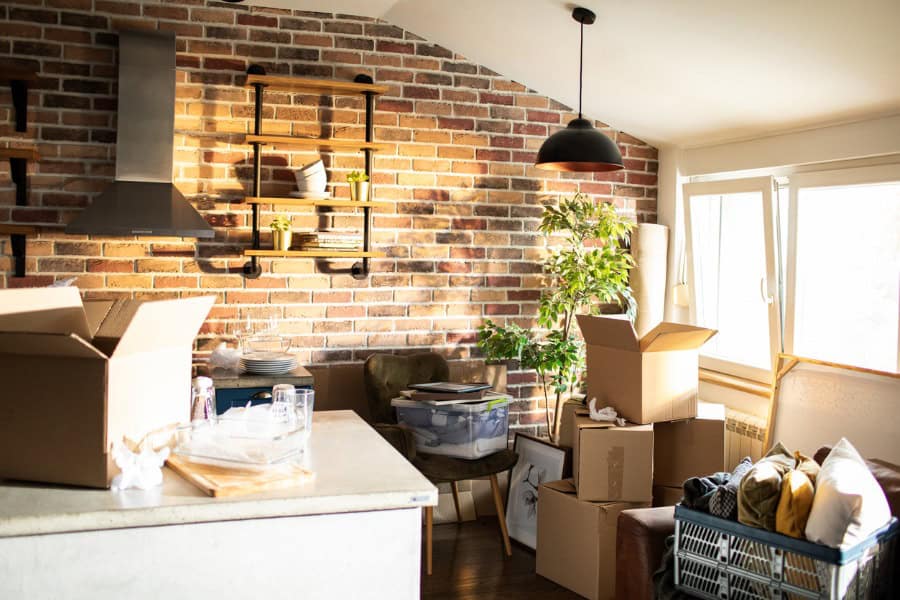Relocating to a new home is exciting and challenging, especially for first-time movers.
If you’re moving to a location that is far from your current one, the process may feel overwhelming, but with the right approach, it can be smooth and manageable.

The right assistance can simplify the journey, helping you with everything from packing to settling in.
Whether you’re making a local move or going further, preparing in advance can ensure a less stressful transition to your new space.
Here’s how you can get started:
Start with Planning Ahead
One of the most important steps in a successful move is to plan. Ideally, start your preparations 6-8 weeks in advance to give yourself enough time.
Begin by researching popular moving companies, securing necessary services, and creating a checklist of tasks. Assess your belongings and begin sorting through them.
This early start will help you avoid last-minute stress and ensure you don’t miss anything important.
A thorough plan allows you to address each stage of the process without feeling rushed and ensures everything is in place when moving day arrives.
Why Choose a Local Moving Company
When relocating to or from any city, selecting a local moving service can make a significant difference.
Local companies are more familiar with the city’s neighborhoods, traffic, and specific challenges, such as narrow streets or busy areas.
This knowledge helps streamline your move, minimizing delays and complications.
Whether you’re heading across town or relocating to a new state, experienced long-distance moving specialists like these pros understand the logistics involved.
Their expertise means you’ll receive efficient, tailored support for everything from large item transport to specialized packing, making your transition much smoother.
If you own a luxury car or multiple vehicles, selecting a reliable car shipping service ensures your cars are handled with care and delivered on time.
These moving specialists understand the special requirements involved in transporting vehicles during a move and provide solutions that align with your timeline and budget. For more details, you can check out a reputable company, like Nexus Auto Transport.
Set a Realistic Budget
Understanding the costs involved in your move is essential.
First, consider the cost of professional services and any additional expenses such as fuel, supplies, or insurance.
Break down your budget into categories, including transport, packing materials, and potential service fees.
If you’re moving large or valuable items, you may want to set aside funds for additional coverage.
Setting a clear budget will help prevent overspending and allow you to allocate funds to areas that need extra attention, such as specialized care for fragile or expensive items.
Declutter Before You Pack

A successful transition often starts with decluttering. Before you begin packing your belongings, take the time to sort through each room and remove items you no longer need.
This process reduces the number of items to move and makes your new home feel less cluttered.
Donate, sell, or dispose of anything that’s outdated or no longer serves a purpose.
By clearing out excess items, you can focus on what truly matters and avoid filling your new space with unnecessary clutter.
This will help save time and effort, leaving you with only the essentials.
Choose the Right Materials
Having the right materials is crucial for protecting your items.
While it’s tempting to reuse old boxes, investing in strong, new boxes, bubble wrap, and quality tape can make a big difference.
Labeling boxes by room and content is vital for keeping everything in its place. Choose packing materials that are suitable for the type of items you’re transporting.
For example, fragile items need extra padding, while clothes can be easily folded and placed in suitcases or wardrobe boxes.
With the right supplies, your belongings will be secure, and you’ll have less to worry about during the process.
Pack Room by Room
Packing room by room helps keep your belongings organized and prevents items from getting mixed up.
Start with the least-used rooms, like the guest bedroom or basement, and pack them first. As you move through your home, pack one room at a time, labeling boxes as you go.
This approach ensures that when you reach your new home, everything is easier to unpack, and you won’t end up with a chaotic pile of mixed-up items.
Remember to pack heavy items in smaller boxes and lighter items in larger ones to avoid strain and to keep things manageable.
Label Your Boxes Clearly
Labeling your boxes is an essential step in streamlining the unpacking process.
Be specific with your labels, including the room the box belongs in and a brief description of its contents.
This way, you’ll know exactly where everything goes when you start settling in.
Consider using a color-coding system where each room gets a specific color label to make the process even easier.
Clear and accurate labeling will save you time and energy, allowing you to get your new home set up faster and without unnecessary confusion.
Arrange Utilities and Services
Before you arrive at your new home, make sure all utilities are set up and ready to go.
Contact your utility providers in advance to ensure electricity, water, internet, and gas are connected by your move-in date.
Don’t forget to transfer any subscriptions or services, such as cable or cleaning services.
This is a simple but often overlooked task that can make a big difference when you walk into your new home.
Having everything set up ahead of time allows you to settle in without delays or disruptions.
Prepare for Moving Day
Moving day can be chaotic, so it’s essential to be prepared. Confirm your moving company’s arrival time and have a list of last-minute tasks to handle before the movers arrive.
Set aside essential items like documents, toiletries, and a change of clothes in a separate bag so you can easily access them on the go.
If possible, make sure someone is available to supervise the movers and address any questions.
Having everything ready and planned will help the day run smoothly, making the transition to your new home as stress-free as possible.
While relocating to a new home may seem daunting, proper planning and preparation can make the experience much easier.
From creating a realistic budget to carefully organizing your packing and settling into your new environment, each step contributes to a smoother transition.
With the right mindset and approach, your first move can be a positive and rewarding experience, setting the stage for a fresh start in your new home.
